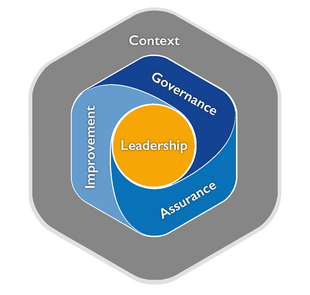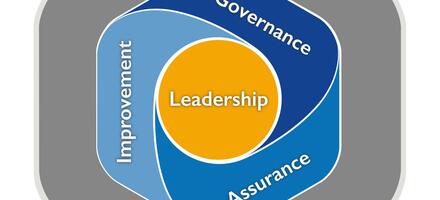
Auditing for improvement
Progress indicator

Dan Kent, CQP FCQI, Head of Quality at Lloyd’s Register, explains how internal and external auditors can benefit from the CQI's Profession Map and drive improvement.
Finding someone who audits full-time is rare. At Lloyd’s Register some of our staff are full-time auditors but they recognise themselves as part of the wider quality community so the relevance of the CQI’s Profession Map is clear.
External auditors face the restriction of regulations and strict rules about consultancy and conflicts of interest, which can appear to corner them in the ‘Assurance’ part of the framework. However, audit activity is just one of a number of types of assurance, which are part of a looping process that starts with governance and ends with improvement.
If you can recognise how that impacts audit activity then you can gain a better understanding of the basis of the audit, rather than just looking at the standard. You can get to know the strategy, the challenges the organisation faces in terms of previous findings and customer feedback, as well as the key risks and what the current performance of the organisation looks like. Then you can help the auditee think about the root cause of the issue (without falling into a consultancy relationship).
It would be limiting to say the auditor doesn't have the ability to guide the conclusions an auditee reaches based on the questions they ask. You can choose to go into more depth in one area or phrase an issue in a certain way. Auditors have to accept some responsibility for raising a finding that at least enables some improvement.
“Audit activity is just one of a number of types of assurance, which are part of a looping process that starts with governance and ends with improvement”
The audit needs to have the right feeling about it – you can’t beat the auditee over the head with it because that will prevent buy-in of the issues raised. I prefer the audit to feel like a more collaborative exercise where we work together to understand the performance, the issues and the degree of compliance.
During an internal audit our response to either an audit finding or customer complaint varies according to what we find. If it’s straightforward, for example simply finding the correction and the corrective action, then action management is very important both in terms of objectively managing the problem and also managing our relationships with stakeholders (including ensuring clarity about who is responsible for what).
However, often the issues we face are more complex. If there are a host of problems at one of our locations we have to look for a deeper root cause. Perhaps there is an issue with the general level of awareness of requirements in the local office, perhaps the training hasn’t landed in the right way, or there is a systemic issue that stops a specific location doing things correctly. In those cases the response isn’t just to look at the individual findings but to look at the root cause and put the right support and awareness and training in place for that location. In the most severe cases we’ll do some different forms of monitoring.
Using assurance
We’re keen to look at a wider set of assurance measures to help us react and predict when some of those problems might be occurring. There is a whole range of assurance we can conduct if we perceive a problem – we look at the business performance, customer feedback and we can look at some of the other measures around safety.
During an external audit you have the opportunity to approach things differently. The audit is more valuable when you plan in advance. Make sure you have an understanding of the key risks and the operational issues the business is facing rather than going in cold. Prepare properly so that you understand the issues and the dynamics of the operation. By doing this you will achieve the right kind of buy-in from the auditees and you are more likely to have support when you reach to the latter stages of the audit.
Next, be clever about how you question and how you search for evidence. The depth of questioning determines how close you will get to the root cause of an issue during an audit process. I think you can go a reasonable way down that path without straying into consultancy or questioning. Really consider how you question so that you help the auditee come to the right conclusions in the end.
“The Profession Map enables us to understand the relationship between the skills and the processes we follow and it ties them together”
Having auditors with a great assurance skill is important and having staff who are schooled in governance is important but together we have a single purpose powered by a common understanding of the process we follow, which is governance, assurance and improvement.
We have to acknowledge that some people are going to place the emphasis on different areas, different particular skills areas but the concept of the Competency Framework enables us to understand the relationship between the skills and the processes we follow and it ties them together.
The status of a quality professional is intrinsically bound to the status of the CQI and the presence it has. The more credibility we give professional status, which has to be founded on a solid foundation of competence, the better it is for all of us because there’s a better and clearer understanding of what quality is and what a quality professional should do.
Discover the Profession Map
Learn more about how the CQI's Profession Map can help you.
Member only

This article is free to access for a limited time only. Only CQI and IRCA members receive access to all content.
CQI and IRCA Certified Training

Certified training courses on quality and auditing topics delivered by our global network of Approved Training Partners.
The Profession Map

Your route to success - equipping modern quality leaders to meet evolving business demands.


